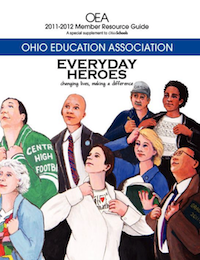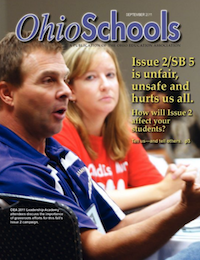Ohio Schools Magazine

Member Resource Guide 2011
The OEA Member Resource Guide is an overview to help you make the most of your OEA Membership

September 2011 Ohio Schools
Issue 2/Senate Bill 5 is unfair, unsafe and hurts us all – How will Issue 2 affect your students?
